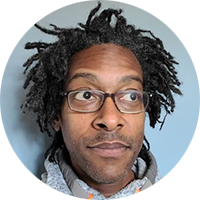The number of generalists an agency needs declines as it grows.
When agencies are small (<10FTE) everyone in leadership has to wear a lot of hats. It’s a few partners who handle a bit of everything. At this stage, leadership has to be a group of high-functioning generalists.
When shops get bigger (10-24FTEs), they’ll add a few specialized managers. Those managers are often still required to jump in on non-job description projects. The level of required generalists falls, but it’s still high.
Agencies reach a specialist-generalist inflection point at the 25-49FTE stage. This is when the trust issue really rears its ugly head. It’s also a general high water mark for shops. Most won’t grow past this size.
Here you have a group of mostly generalists who’ve built the company, but for it to grow, leadership needs to add and integrate new specialists (VPs/Directors of Sales, Marketing, HR, Finance, etc.).
Trusting new specialists is tough
Thanks to the mere-exposure effect, we tend to trust things that we’re more familiar with. If we’ve had a generalist handling sales for a few years, even if they’ve only been moderately successful, we’re wired to trust them more than someone new.
This creates friction. Sometimes A LOT of friction.
When owners bring on those specialists, often some of the largest salaries they’ve ever paid, it’s easy for the system they’ve built to undermine them.
You have meetings where a tenured generalist’s opinion is weighed the same or more than a new specialist’s. Not only does this reduce the specialist’s effectiveness, but it also defeats the entire purpose of hiring them in the first place.
Fixing trust issues
I’ve seen this play out time and time again, and the solution boils down to building trust in your team. This is especially important when bringing on a new domain expert.
You can do this by verifying some key traits when hiring:
- Capability. The specialist really is an expert in their area.
- Shared interest. The specialist is aligned with your vision enough to do a good job.
- Same team. The specialist engages authentically with the team.
Then there’s work to do with your established team. Ensure they know and believe that the specialist is an expert who’s strategically aligned, and is operating authentically.
A required transition period.
Your team needs to see evidence that they can trust the new specialist. When generalists offer opinions, encourage them to take the risk that not offering them will still result in success. When they see evidence of this success a few times, it’s your job as an owner to make sure everyone’s operating within their defined lane. This also means you need to define the lanes. See our Roles Goals & Structure post for more on that.
By letting your generalists step back and wear fewer hats, you free them to specialize in a core area. They can dive deep into a capability while still retaining that broader perspective.
Sometimes generalists won’t want to transition to specialists. They like having a say in everything. It makes them feel needed. It makes them feel important. These people are best suited for growing a shop in its early years, but they can be a headwind for shops trying to grow past the Medium (25-49FTEs) size.
If your firm doesn’t trust your new specialists, they won’t stick around long. They’ll find a team that does. This is why we see higher turnover at new leadership positions as shops grow.
If you don’t trust your experts, someone else will.
Want help navigating this?
I know how challenging it can be to keep up with the rapid pace of the digital agency world. That’s why I created our Agency Assessment, to help owners uncover and realize their shop’s hidden potential.
Optimizing your agency gives you options.
Those options let you react appropriately to changes in the environment. Changes like AI disruption, economic shocks, etc.
It’s an intense look into every aspect of your agency that results in a fully custom report that pinpoints exactly where you should focus your team’s effort for the maximum results.
Check it out at the link below. If it sounds interesting, reach out and we can chat through the details.




